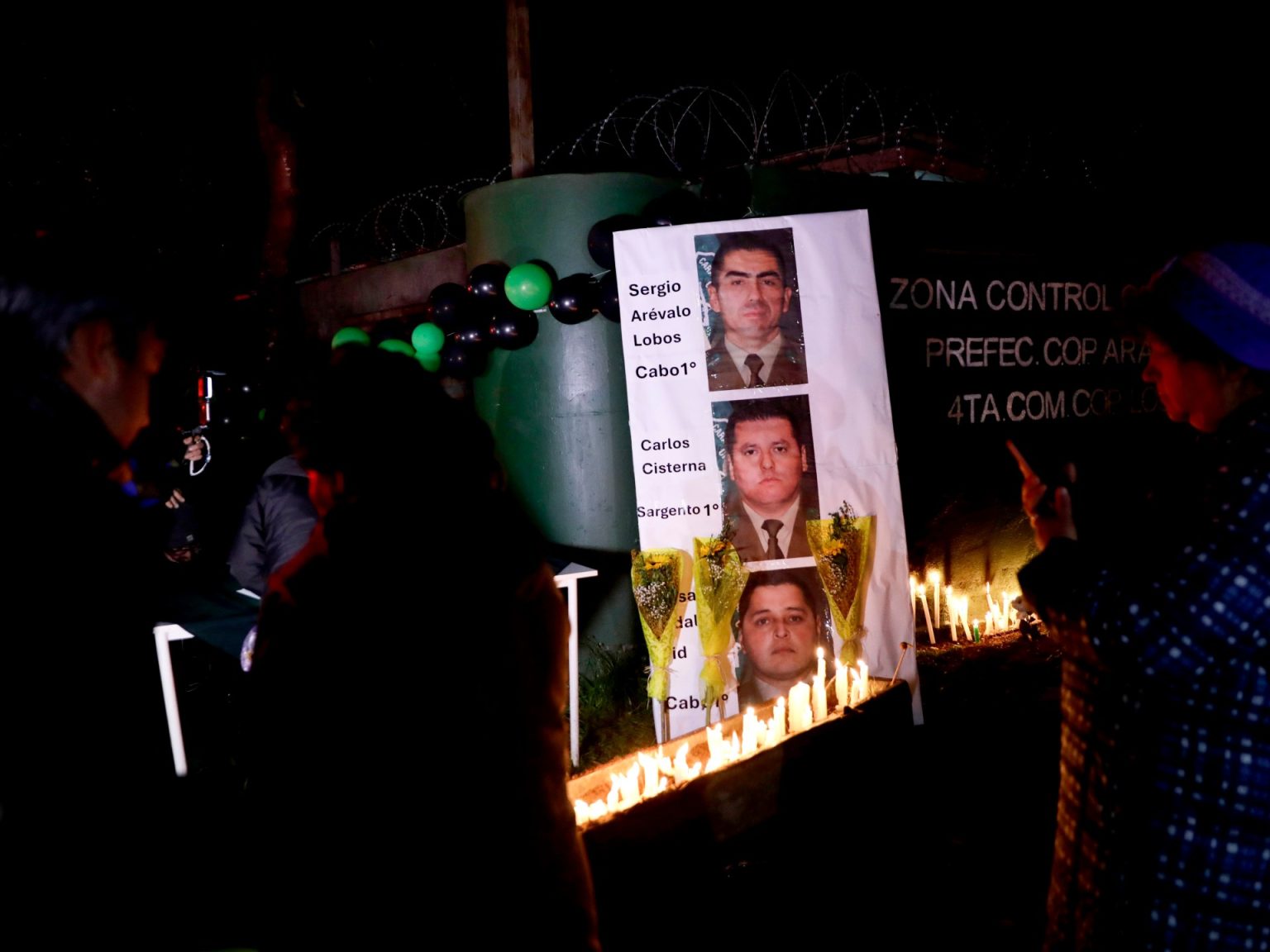Armed assailants ambushed and killed three police officers in southern Chile in the Arauco province’s Canete municipality. The attack was described as cowardly by President Gabriel Boric, who declared three days of national mourning for the fallen officers. The officers had responded to three false emergency calls and were attacked in their vehicle with heavy-calibre weapons, burning inside the armoured patrol vehicle on a road near the city of Concepcion. The perpetrators of the crime are still unknown, but tensions between the Mapuche Indigenous community and landowners and forestry companies in the region have intensified.
The Mapuche tribe makes up about one in 10 citizens of Chile and has a long history of resisting Spanish conquest centuries ago, only being defeated in the late 1800s after Chile’s independence. Large forestry companies and farm owners control vast tracts of land that originally belonged to the Mapuche, many of whom now live in rural poverty. The conflict between the Mapuche community and these companies has forced the government to impose a state of emergency and deploy the military to provide security. President Boric, along with top military and congressional officials, visited the area to offer condolences to the victims’ families and vowed to find and bring the killers to justice.
Hundreds of people gathered outside the presidential palace in Santiago to protest against the killings, which occurred on National Police Day, celebrating the 97th anniversary of the establishment of the Carabineros, Chile’s military police force. This was the second fatal attack on the force this month, leading General Director Ricardo Yanez to emphasize that the ambush was not coincidental or random and had been planned. The violence has tested President Boric’s administration, which had promised to ease tensions in the region and had previously touted a reduction in the national homicide rate.
The attack on the police officers goes against the progress made in reducing Chile’s national homicide rate, according to Interior Minister Carolina Toha. The government has been successful in reducing the homicide rate by 6 percent, as per government figures from 2023 published earlier that week. Armed Mapuche activists in the region have been involved in stealing timber and attacking forestry companies that they believe encroached on their ancestral lands. The situation has become increasingly volatile, with tensions between the Mapuche community and authorities escalating, leading to security concerns in the country.
The long-standing conflict between the Mapuche Indigenous community and landowners in Chile continues to escalate, with recent attacks on security forces adding to the unrest. President Boric has condemned the ambush on the police officers, promising to find and prosecute the perpetrators. The situation in southern Chile remains tense, with ongoing clashes and violence between different groups. Despite efforts to ease tensions and reduce violence in the region, the recent attack has highlighted the challenges faced by the government in maintaining peace and security in the area.


